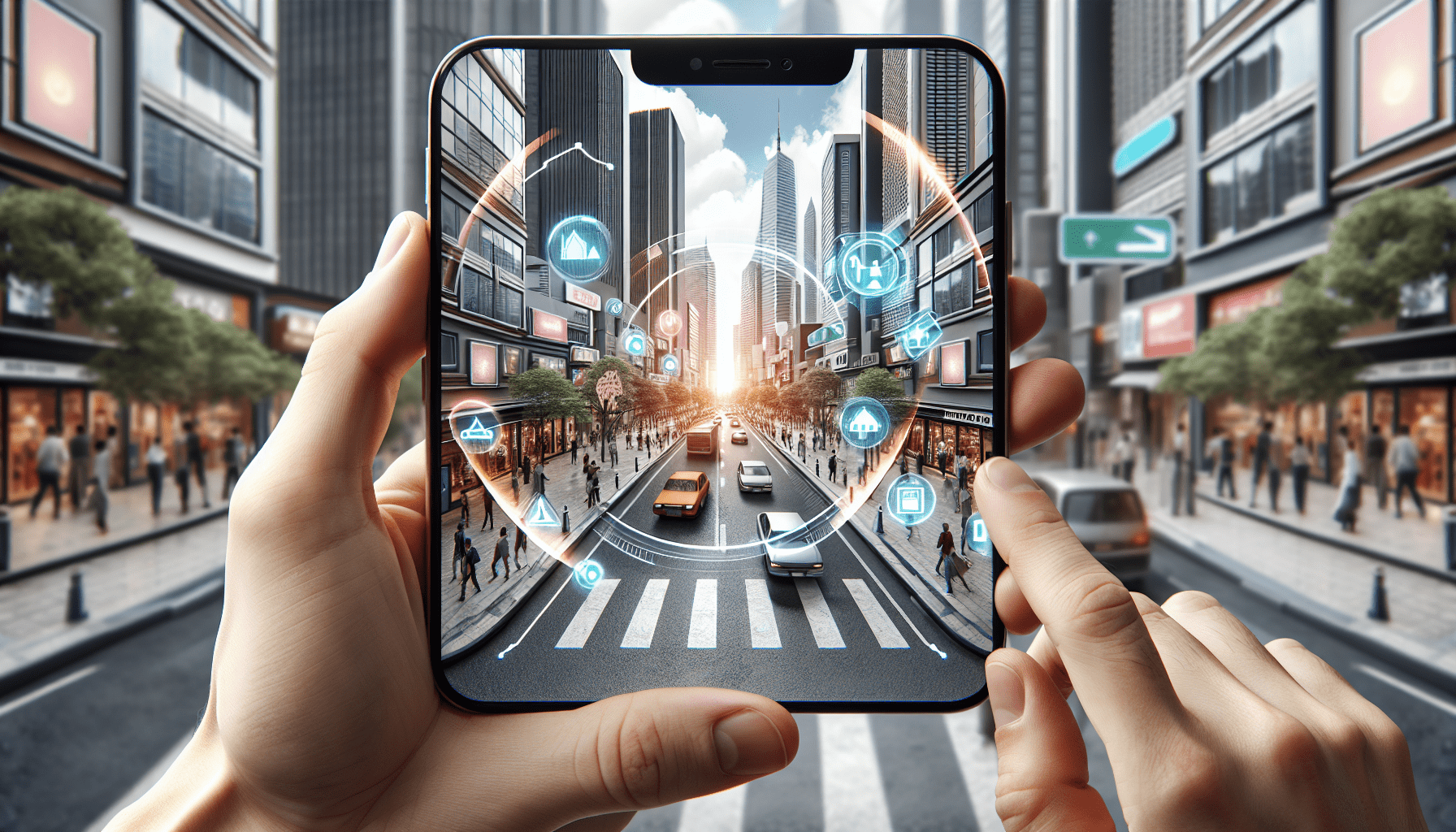Imagine a world where your mobile phone is not just a device, but a gateway to a whole new dimension of possibilities. From virtual reality experiences that transport you to far-off places, to innovative biometric security features that ensure your personal information is always protected, the future of mobile technology is nothing short of extraordinary. In this article, we will explore some of the most exciting advancements on the horizon and how they will shape our lives in the years to come. Get ready to be amazed as we unveil the future mobile tech trends that will revolutionize the way we live, work, and play.

Artificial Intelligence
Artificial Intelligence (AI) is revolutionizing the way we interact with our mobile devices, and one of the most notable applications of AI is voice assistants. These intelligent virtual helpers like Siri, Alexa, and Google Assistant are always ready to assist you with a wide range of tasks, from setting reminders and playing music to providing real-time weather updates and answering complex questions. With advancements in natural language processing and machine learning, voice assistants have become smarter and more intuitive, understanding your commands and responding in a conversational manner. They can even learn from your behavior and preferences to provide personalized recommendations and suggestions tailored specifically to you.
5G Technology
The introduction of 5G technology promises to bring about a significant transformation in the world of mobile communication. With increased speed and capacity, 5G networks can handle massive amounts of data with minimal latency, enabling faster downloads, seamless streaming, and improved overall connectivity. This technology not only enhances the user experience by providing lightning-fast internet speeds but also opens up new possibilities for remote and rural areas that previously had limited access to reliable internet connections. With 5G, education, healthcare, and other essential services can be extended to even the most remote corners of the world, bridging the digital divide and creating a more connected global community.

Augmented Reality
Augmented Reality (AR) is an exciting technology that overlays digital content onto the real world, enhancing our perception and interaction with the environment. The integration of AR into mobile apps has opened up a whole new realm of possibilities, transforming the way we shop, learn, and play. With AR-enabled mobile apps, you can visualize furniture in your home before making a purchase, learn about historical landmarks by simply pointing your phone’s camera at them, or even engage in interactive gaming experiences where virtual objects interact with the real world. The potential for AR is immense, and as the technology continues to evolve, we can expect even more immersive and realistic experiences in the future.
Foldable Displays
Imagine a smartphone with a screen that can fold, allowing you to have a compact device in your pocket and a tablet-like experience when you need a larger display. This is made possible by foldable displays, a cutting-edge technology that enables screens to bend and flex without compromising picture quality. With foldable displays, multitasking becomes a breeze, as you can have multiple apps open simultaneously side by side. Whether you need to respond to an email while watching a video or work on a document while referencing another, foldable displays provide the flexibility to do it all. As this technology continues to advance, we can expect thinner and more durable foldable displays that offer seamless transitions and an even greater range of applications.

Internet of Things (IoT)
The Internet of Things (IoT) is a network of interconnected devices that communicate with each other and with the internet, making our lives more convenient and efficient. One of the most prominent applications of IoT is smart home automation. With IoT-enabled devices, you can control your lights, thermostat, security systems, and even appliances through your smartphone, creating a truly interconnected and intelligent home. IoT also extends to connected cars, where vehicles can communicate with each other and with the infrastructure to improve safety, optimize traffic flow, and enhance the overall driving experience. As IoT technology continues to evolve, we can expect more seamless integration of devices, making our lives smarter and more connected than ever before.
Biometric Authentication
Biometric authentication is a secure and convenient way to verify your identity using unique physical or behavioral characteristics. Facial recognition and fingerprint scanning are two popular forms of biometric authentication used in mobile devices. With facial recognition, your phone’s camera captures and analyzes key points on your face to create a unique digital signature, allowing you to unlock your device or authenticate payments with a simple look. Fingerprint scanning, on the other hand, uses sensors embedded in your smartphone’s screen or home button to read the unique patterns on your fingertips. Both of these biometric authentication methods provide a higher level of security compared to traditional passwords or PINs, and they offer quick and effortless access to your device and personal information.

Blockchain Integration
Blockchain technology, often associated with cryptocurrencies like Bitcoin, is finding its way into various industries, including mobile technology. Blockchain’s decentralized and transparent nature provides enhanced security and privacy for mobile transactions and data storage. By leveraging blockchain technology, mobile apps can ensure that sensitive user information, such as personal and financial data, is stored in a tamper-proof and immutable manner, reducing the risk of data breaches and unauthorized access. Moreover, blockchain enables the development of decentralized applications (DApps) that operate on a peer-to-peer network, eliminating the need for intermediaries and enhancing user control over their data. As blockchain integration in mobile technology continues to advance, we can expect a more secure and user-centric digital landscape.
Mobile Payments
The rise of mobile payments has transformed the way we make transactions, offering a convenient and contactless alternative to traditional payment methods. With mobile payment services like Apple Pay, Google Pay, and Samsung Pay, you can securely store your credit or debit card information on your smartphone and make purchases by simply tapping your device on a contactless payment terminal. In addition to contactless transactions, mobile payment apps also offer features like loyalty programs, digital coupons, and peer-to-peer payment transfers, making the entire payment experience more seamless and versatile. As mobile payment technology continues to evolve, we can expect increased adoption and integration with other services, such as public transportation and loyalty rewards programs, further simplifying our daily transactions.

Extended Reality (XR)
Extended Reality (XR) encompasses both Virtual Reality (VR) and Mixed Reality (MR), creating immersive and interactive experiences that blur the boundaries between the physical and digital worlds. VR technologies transport you to virtual environments, completely replacing your physical surroundings with computer-generated visuals and sounds. On the other hand, MR technologies augment your real-world experience by overlaying digital elements onto the physical environment, allowing for interaction between virtual and real objects. Both VR and MR have significant implications for mobile technology, offering applications in areas such as training and education, gaming, and virtual tourism. As XR technologies continue to advance, we can expect more realistic and accessible experiences that enhance our daily lives and provide limitless possibilities for creativity and exploration.
Edge Computing
Edge computing is a paradigm shift in how data processing and storage are approached. Traditionally, mobile devices relied on cloud services to handle computationally intensive tasks, sending data back and forth to remote servers. However, with edge computing, the processing power is moved closer to the source of the data, reducing latency and improving overall performance. By offloading tasks to local servers or even the devices themselves, edge computing enables faster response times for applications that require real-time data processing, such as autonomous vehicles and industrial automation. Additionally, edge computing can reduce reliance on cloud services, making mobile devices more independent and efficient. As edge computing technologies continue to advance, we can expect faster and more responsive mobile apps and services that leverage the power of local computation.
In conclusion, the future of mobile technology is filled with exciting possibilities and advancements. From artificial intelligence-powered voice assistants and 5G networks that promise increased speed and connectivity, to augmented reality experiences that immerse us in a world of digital enhancements and foldable displays that offer flexible multitasking capabilities, the future is bright. The Internet of Things brings us smart homes and connected cars, while biometric authentication and blockchain integration ensure enhanced security and privacy. Mobile payments make transactions more convenient and contactless, while extended reality technologies like VR and MR provide immersive experiences beyond our imagination. With the advent of edge computing, we can expect faster processing speeds and reduced reliance on cloud services. As we embrace these innovations, our mobile devices will continue to shape and enhance our lives, making day-to-day tasks more efficient, entertaining, and enjoyable. So, get ready to experience the future of mobile tech, where possibilities are limitless, and the world is at your fingertips!



